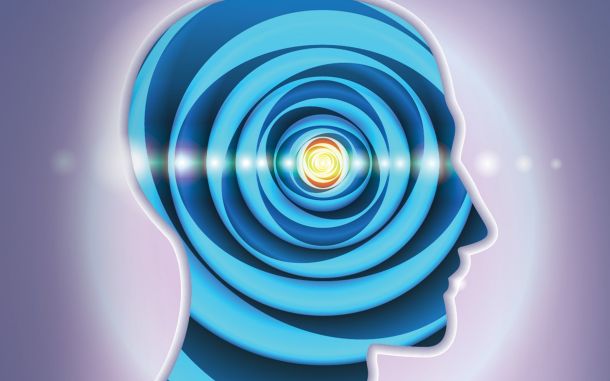Another Way of Journeying and Initiation (1)

In This Article
-
Helplessness, poverty, affection, reflection, zeal and thankfulness are the basic elements of this way.
-
Helplessness is a path of light leading to being loved by God that is safer and quicker than love.
Some make spiritual journeys by refining and developing the faculties, while others purify the carnal soul within, causing it to take certain steps. In both these ways, suffering for certain periods is essential to reach the rank of perfection and to become a perfect human being. Yet there are other ways, different from these two ways, to reach the ranks and stations and the favors and blessings that come through spiritual journeying and suffering. Among these ways, there is one which is based on the way of the Prophet’s Companions and may be regarded as a manifestation of the truth of Messengership.
Helplessness, poverty, affection, reflection, zeal and thankfulness are the basic elements of this way. Helplessness means being aware of one’s inability to do many of the things that one wants to do, and poverty denotes the awareness of the fact that it is God Who is the real Owner and Master of everything. Embracing everybody and everything because of Him is affection, while reflection is thinking deeply, analytically and systematically about and meditating on the outer and inner world, with a new excitement every day. Zeal is the great, ardent desire and yearning to reach God and to serve in His cause. Always thanking God for His bounties and proceeding to Him in full consciousness of all His blessings during the journey is thankfulness.
According to Bediuzzaman Said Nursi, this way is more direct and safer. Helplessness is a path of light leading to being loved by God that is safer and quicker than love; in it the more one perceives one’s helplessness, the more quickly one will reach one’s goal. Poverty is an inexhaustible treasure which, to the extent of one’s consciousness of it, will lead one to the protection and direction of the All-Merciful and His infinite Power much sooner and more safely than the greatest discipline, efforts and endeavors could. Affection is deeper and more sincere than love. No traveler having this feeling, which is a manifestation of Divine Compassion, has ever been left halfway. Reflection is the way of the enlightened spirits who relate everything to wisdom through study and the observation of one’s inner world and the outer world. As for zeal, it is the characteristic of those who are always conscious of the points or senses of reliance and asking for help that are innate in human conscience. These two senses always remind of God. Those endowed with zeal never become desperate or disappointed. And finally, thankfulness is returning with gratitude all the blessings of God that we receive almost gratis.
The essence of the way can be summed up as: “I am helpless, You are the All-Powerful; I am poor, You are the All-Wealthy; I am needy and in straitened circumstances, You are the All-Compassionate; I am bewildered and seeking a way out, You are the Goal Which is sought and to be reached.” It is not possible for those who are aware of their helplessness, poverty, neediness and bewilderment to see themselves as pure or of being of any rank, thus it is not possible for them to be heedless or forgetful of God while knowing that whoever forgets Him is forgotten and bound to forget him or herself also. Nor is it possible for them to attribute to themselves the accomplishments with which God has favored them, using the pretext of their endeavors, nor to ascribe their evil and sins to Destiny, thus regarding themselves as existing independently of God.
According to Bediuzzaman, this way can be dealt with from the viewpoint of the following four disciplines:
- Making efforts to see the carnal soul as not being purified and sinless, as against its innate tendency to see itself as pure and sinless.
- Being careful and resolved to forget oneself when and where one should forget and remember oneself when and where one should remember.
- Being well aware of the fact that God creates everything— good and evil—and is the only source of all Thus, one should attribute to oneself all one’s sins and evil as being caused by one’s own person, albeit it is God Who has created them, and all good and all accomplishments should be attributed to God, and one should be thankful.
- Whatever state one is in and whatever rank one reaches during one’s journey, one should know that both one's existence and merits are but a shadow or a shadow of the shadow of the lights of Divine Existence, and that all aspects of one’s existence are a mirror of the manifestations of His Knowledge and
Now let us explain these points in accordance with the approach of Bediuzzaman:
The first discipline: The carnal soul in its nature is fond of itself, and only loves and has relations with others because of itself. The self-love of the carnal soul is so great that its adoration of itself is like the adoration of God felt by a sincere believer devoted to the One Who absolutely deserves worship and who should be sought. It never shows inclination to acknowledge its errors and always sees itself as being pure and free of error. So, one should wage the major (greater) jihad against such an attitude, always criticizing and questioning it, softening and melting it in the blast-furnace of self-criticism and self-supervision in order to re-shape it. One should never see oneself as free and absolved of errors and sins, and the acceptance of this is, in fact, the tap under which it should and can be cleaned. Only by doing so can one’s innate positive potentialities be developed.
If we continuously seek purification in seeing ourselves as prone to evils and errors, angels and other spiritual beings will greatly appreciate our decency and cleanliness, and, as stated in a Prophetic saying (Muslim, Tawba, 12-13), they will come down from all sides to shake hands with us. If, by contrast, we are so heedless that we see ourselves as clean and infallible, we will inevitably be representatives of a loathsome nature from which even devils will keep aloof in disgust. As Rumi said, human beings are such that sometimes they become like the Devil under the influence of satanic impulses, and sometimes they are on a par with angels at the summits of spiritual life.
The second discipline: A person with an unpurified, evil-commanding carnal soul may be forgetful of the most vital matters, which should never be forgotten, and such a person does not even want to recollect them, while pulling up from the heart matters that should never be remembered. Human beings should always think of serving God’s cause, of being earnest in their deeds, of their responsibilities to the people around them, and of death and what lies beyond it. They should uproot from their spirit hatred, jealousy, worldly ambitions, greed, and carnal desires. Only by doing so can human beings keep their innate tendency toward spirituality alive and hold themselves back from rousing the satanic tendencies within them.
We, travelers on the way to God, should see belief in God and living along the line of His good pleasure as a blessing, and concentrate on how we can please Him with all our thoughts, feelings, and actions. We should also try to lead our lives in His company, and by virtue of this company, we should continually seek new means to be always in close relationship with Him. We should always be aware of what Rumi reminds us of: “There is a hidden One here; O heart, do not see yourself as alone.” Based on our relationship with Him, we should strive to transcend our limited nature in order to advance toward infinity, developing our drop-like existence into an ocean, and seeking the mysteries of the universal in our particular existence. If we lead such a life, the things that are seen as impossible to do are done and obstacles that seem insurmountable are surmounted. Particulars become reflections of and mirrors to the universal, and what we see as non-existent takes on the color of existence, a dewdrop excels the moon in reflecting the sun, earth becomes as elevated as the heavens, and our particle-like natures expand to the extent of the universe.
Mawlana Rumi, the prince of the lovers of God, advises us to transcend the corporeal dimension of our existence and discover the mysterious potentialities of our spirit, saying:
A pitcher which has found the way to the sea: rivers prostrate themselves before it.









